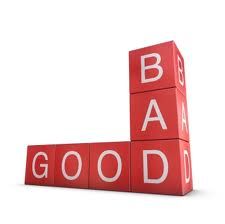“The Pharmacist Caught in the Office” Cartoon
Do you often wish your pharmacy staff or direct report(s) would perform better? Wish you had the skills to manage them better?
The Pharmacist Caught in the Office by Chen Yen on GoAnimate
Find yourself feeling this way about your contract pharmacists? What if this didn’t have to happen to you so much? Click here for your options.
Sometimes less is more. So for this article, I’d like to leave you with a few powerful quotes about effective management to contemplate. Pick your favorite one to work on today:
“Leadership is a reciprocal process. In order for people to follow you, they must trust and believe in you. And in order for people to trust and believe in you, you must first trust and believe in them.” (Not just saying the words “I believe in you”, but the feeling of really believing in them)
“The only way to systematically improve individual performance is to consistently give constructive coaching and developmental feedback.”
“Coaching is not merely something that you, as a manager, must do. A Coach is someone that you, as a leader, must become.”
“To get your team to become coachable, you must first become coachable. To get your team to open up, you must first open up. To get your team to embrace developmental feedback, you must first embrace developmental feedback. As a coach, you set the standard for your team to follow. And your personal example is the most powerful leadership tool you have.”
“Great coaches consistently get the most out of their people because they consistently put the most into their people.”
Don’t think a weekly coaching conversation is possible in the pharmacy? Think again. Read the book and decide for yourself. It’s a short read:
How often do you feel like this in the pharmacy? Comment below on your challenges and solutions to this problem. Share what you’ve found to be most helpful with motivating your pharmacy staff to their best performance.
Pharmacy Plans Not Coming True?
 Can you believe January is almost over? Do you ever make resolutions & forget them by the 3rd week? There’s nothing more frustrating than making the same resolutions over & over again, and not seeing them come true.
Can you believe January is almost over? Do you ever make resolutions & forget them by the 3rd week? There’s nothing more frustrating than making the same resolutions over & over again, and not seeing them come true.
Tired of making plans for your pharmacy or department that don’t come true?
Here are the first 3 steps that most pharmacy directors or leaders overlook when creating a plan for the year. Doing these 3 steps BEFORE planning for action steps will juice up your vision & allow it to come true more naturally this year. It will not only inspire you, but your pharmacy staff also.
Download the simple worksheet here.
Write on one sheet the following:
1. Why you are doing what you are doing
Example: “I am a ________________ (ie, pharmacy director/contract specialist) because ____________(your “why”)
(I am a pharmacy manager because I want to run a pharmacy where patients are well-cared for & can count on us for getting the best mediation options they can get)
2. Your vision for your pharmacy/department by the end of the year.
Example: “We are helping # patients/mo by helping them quit smoking & breathe easier.”
3. Write down the things that worked well & didn’t work well last year. This is a great opportunity for you to reflect on all the things that went well & acknowledge yourself (and others) for. Then write down what you choose to maximize or minimize doing.
 Maximize things that worked well, or contributed to your team getting along well with each other. Minimize things that didn’t support your vision. It can include habits like procrastinating, not keeping your word (however small), coming in late, or complaining. It’s small leaks in every individual (including yourself) that contribute to a bigger problem of things not working well in your pharmacy. You set an important example for your pharmacy with your actions, whether you realize the extent of it or not.
Maximize things that worked well, or contributed to your team getting along well with each other. Minimize things that didn’t support your vision. It can include habits like procrastinating, not keeping your word (however small), coming in late, or complaining. It’s small leaks in every individual (including yourself) that contribute to a bigger problem of things not working well in your pharmacy. You set an important example for your pharmacy with your actions, whether you realize the extent of it or not.
This 3-step process is very effective to write down, before you break your vision down into next action steps.
Fill out the worksheet this for yourself and ask your staff to do it also.
**Now don’t miss this final step (ok, so it’s actually 4 steps 🙂 ): Post this up on your wall. This is the key between you having trouble with reaching your vision, vs. it coming true faster.
Enter your name and email below to get instant access to the worksheet download:
Annoyed by Your Pharmacist Co-Workers?
 Annoyed by your co-workers? Ever wonder why some people just rub you off the wrong way & trigger an emotional reaction by you? But someone else saying other derogatory words don’t hurt you?
Annoyed by your co-workers? Ever wonder why some people just rub you off the wrong way & trigger an emotional reaction by you? But someone else saying other derogatory words don’t hurt you? Working in a pharmacy often means working in a close-knit environment with co-workers and working with those who may push your buttons. It is an opportunity to learn to embrace a part of yourself that you may not see in yourself. I remember working at a pharmacy when I felt micromanaged by another pharmacist. Whatever I did, I felt like he was looking over my shoulders even though he was not my supervisor. I would feel annoyed. One day, I don’t even remember what he said to me, but it made me break down in tears.
Working in a pharmacy often means working in a close-knit environment with co-workers and working with those who may push your buttons. It is an opportunity to learn to embrace a part of yourself that you may not see in yourself. I remember working at a pharmacy when I felt micromanaged by another pharmacist. Whatever I did, I felt like he was looking over my shoulders even though he was not my supervisor. I would feel annoyed. One day, I don’t even remember what he said to me, but it made me break down in tears.
 Years later, looking back, I realize that I used to label him as controlling. At the time, I did not embrace the controlling side of me. Being controlling was something I viewed as being a despicable quality to have, and didn’t see myself having it. As humans, we actually have the capacity for the whole range of human emotion, including being controlling. But society teaches us that certain qualities are “bad” and others are “good”. As a result, we don’t embrace parts of ourselves that we feel are “bad”. When others act with a quality we label as “bad”, it can trigger an emotional reaction in us.
Years later, looking back, I realize that I used to label him as controlling. At the time, I did not embrace the controlling side of me. Being controlling was something I viewed as being a despicable quality to have, and didn’t see myself having it. As humans, we actually have the capacity for the whole range of human emotion, including being controlling. But society teaches us that certain qualities are “bad” and others are “good”. As a result, we don’t embrace parts of ourselves that we feel are “bad”. When others act with a quality we label as “bad”, it can trigger an emotional reaction in us.
That day, what he said to me triggered an emotional reaction that made me feel he was being controlling. When I eventually embraced the controlling side of me fully, I no longer attracted people into my life who made me feel they controlled me. Now I am able to make observations from a space where things that used to annoy me don’t trigger an emotional reaction in me anymore. It allows me to work with others from a renewed place on a daily basis. It is very freeing.
 Of course, I am human and continue to work on embracing parts of myself that I deny. Embracing parts of ourselves include not only what we normally view as “bad”, but also “good”. For example, you may not embrace the beautiful part of yourself. If this rings true for you, if someone says “you are beautiful”, you may say no, I’m not, or you may laugh it off, for example. This is a concept that is taught by Debbie Ford, author of New York Time’s Best Selling Book “The Dark Side of the Light Chasers: Reclaiming Your Power, Creativity, Brilliance, and Dreams.”
Of course, I am human and continue to work on embracing parts of myself that I deny. Embracing parts of ourselves include not only what we normally view as “bad”, but also “good”. For example, you may not embrace the beautiful part of yourself. If this rings true for you, if someone says “you are beautiful”, you may say no, I’m not, or you may laugh it off, for example. This is a concept that is taught by Debbie Ford, author of New York Time’s Best Selling Book “The Dark Side of the Light Chasers: Reclaiming Your Power, Creativity, Brilliance, and Dreams.”
When you incorporate this concept of dark and light, you can use in all areas of your life, to help you have more money, better health, intimacy, heal relationships, or make peace with a painful experience.Try incorporating this concept in your daily work life. The next time someone annoys you, observe what it was about that person annoyed you. Maybe it was because that person was angry and yelled loudly at you. Look inward and see if you can have that capacity to be angry, or if you deny that possibility in yourself to get angry to that capacity. The more you grow to expand your capacity to feel fulfilled and embrace all aspects of yourself, the less external situations will affect you. Things your co-worker used to do that annoyed you will no longer bother you.
Comment below on what you’ve done when you’ve been annoyed by your pharmacy co-workers, or what you’ll do differently now that you’ve read this article.
#1 Reason for Communication Challenges in a Pharmacy
 The #1 communication method that causes misunderstandings in pharmacies is….
The #1 communication method that causes misunderstandings in pharmacies is….
You voted & the results are in from last month’s poll of pharmacy residency directors and pharmacy managers. The most popular answer was email. Face-to-face communication is currently in 2nd place. Do you agree?
What method of communication has caused you the most misunderstandings? If you haven’t voted yet, vote here & see the latest tally so your input is counted.
Tired of emails causing you frustrations with miscommunication? Here are 7 ways to prevent this issue from happening, including when & when not to use email.
7 Reference Questions You Wish You Asked Before Hiring a Pharmacist
Have you ever hired a pharmacist you got along with so well during the interview, only to wonder why you hadn’t seen it coming that your new hire would not work out as your employee?
Hindsight is always 20/20. But what if you could have as close to 20/20 before you hire someone? Take the emotional judgment out of your decision by using your intuition (NOTE: there is a distinction between intuition and emotion), assessing someone’s potential for future performance, and uncovering past behavior. This prevents you from just hiring someone you like, but who may not be a fit for the role. The decision factors mentioned above are the keys to a successful hire.
One method to uncover past behavior is asking the right reference questions. Not just generic standard reference questions, but insightful ones that help you make a sound decision. Don’t skip asking these insightful questions before you rush into hiring someone just because you’re short-handed.
Ask these 7 Reference Questions Before You Hire Your New Pharmacist:
- What did you find him/her to be naturally good at, or thrive on doing?
- Tell me about a time when a breakdown happened (ie, patient wasn’t getting served in the way you wanted; project wasn’t completed in a timely manner). What happened & what was the resolution?
- Under what kind of work environment do you think he/she would feel stifled in?
- Did he/she meet, exceed, or perform below your expectations?
- What advice do you have for managing him/her, and bringing out the best in him/her?
- What comes to mind first when you think of him/her–a starter, or a finisher?
- Would you have him/her work there again if the opportunity arose?
BONUS Reference Check Question:
If you were to hire XXX back and could create a position for XXX, what kind of a position would it be (ie, responsibilities)?
Comment below, or click the link to the right to share YOUR favorite reference questions. Contribute and you will receive a FREE Gift of” Top 20 Interview Questions to Ask“, so You Hire the Best Pharmacist NOT the Best Interviewer.
Gossiping & Backstabbing in the Pharmacy
Having problems with gossiping or backstabbing happening in your pharmacy, or someone on your pharmacy staff always arriving late and others getting upset about that person never being called out on it?
Let it be a thing of the past. Create a “code of honor” specifically for the pharmacy to prevent this.
Q: This sounds stuffy. Why go through the trouble?
A: This is something that isn’t routinely talked about in pharmacies, but is in essence the things (said or unsaid) that a team works according to. If there is not an established code of honor for the team, an individual usually goes by his/her own code of honor to make decisions. This is where you can start having problems among your staff.
Q: A Code of Honor-What is it?
A: As defined by Blair Singer’s “The ABC’s of Building a Business Team That Wins” (NOTE: this also applies to pharmacies & hospitals), “a Code of Honor is the physical manifestation of the team’s values, extended into behavior.
Not only is it important to have values, but also knowing how to put behavior into practice that reflect those values. Establishing and agreeing to a code of honor helps everyone achieve their best performance, enjoy their work environment, and see the best results.
Q: Why is it necessary?
A: Blair explains why a Code of Honor is necessary: “By experience and default we all formulate our own sets of guidelines, rules and assumptions. That’s natural. But when we start coming together with other people, organizations and cultures, we sometimes have a tough time figuring out why “those guys” don’t understand, or how they could so blatantly turn their back on our feelings, our way of doing things and our rules. In most respects, “those guys” feel the same way about us. Why? Because we assume that certain basic rules are the same. Bad assumption.”.
Having a strong mission & an established culture is only part of the whole picture. Having a strong code of honor within the pharmacy makes the team stronger and reinforces what the pharmacy stands for.
Mission comes first, the needs of the team second, and the needs of the individual third. Develop the code of honor together as a pharmacy.
Some code of honor examples: “When a team member needs help, we will do whatever it takes to help that team member complete the task.” “Celebrate all wins.” “When someone breaches the code…”call it”!” “Keep agreements.” “Be on time.”
Tips for Implementing Your Pharmacy’s Code of Honor
Discuss the code and make sure everyone is on the same page. For example, there may be different interpretations of what being on time means. Some people view being on time as arriving through the door on time. Others view it as ready at a workstation with a pen to start doing what needs to be done. This is to be discussed so that the team is on the same page and there is no unspoken resentment about different interpretations about the code.
In the absence of rules or “code”, people make up their own rules. One of the biggest challenges about the workplace is that well-meaning people are playing by different sets of rules.
If you want to learn more about how to implement the code of honor in your pharmacy, read Blair Singer’s “Rich Dad’s Advisors®: The ABC’s of Building a Business Team That Wins: The Invisible Code of Honor That Takes Ordinary People and Turns Them Into a Championship Team